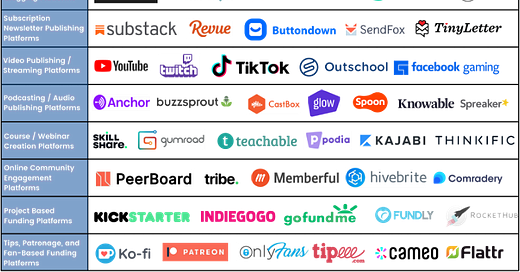Nearly two years ago, in October 2019, I wrote about the succession of labor models, from a knowledge economy to gig economy to a passion economy. Each new model brings simultaneously a greater and more invisible exploitation and inequality.
In the passion economy, the keyword is individual creativity: make money off your distinct skills, talents, and kn…
Keep reading with a 7-day free trial
Subscribe to The Sociology of Business to keep reading this post and get 7 days of free access to the full post archives.




